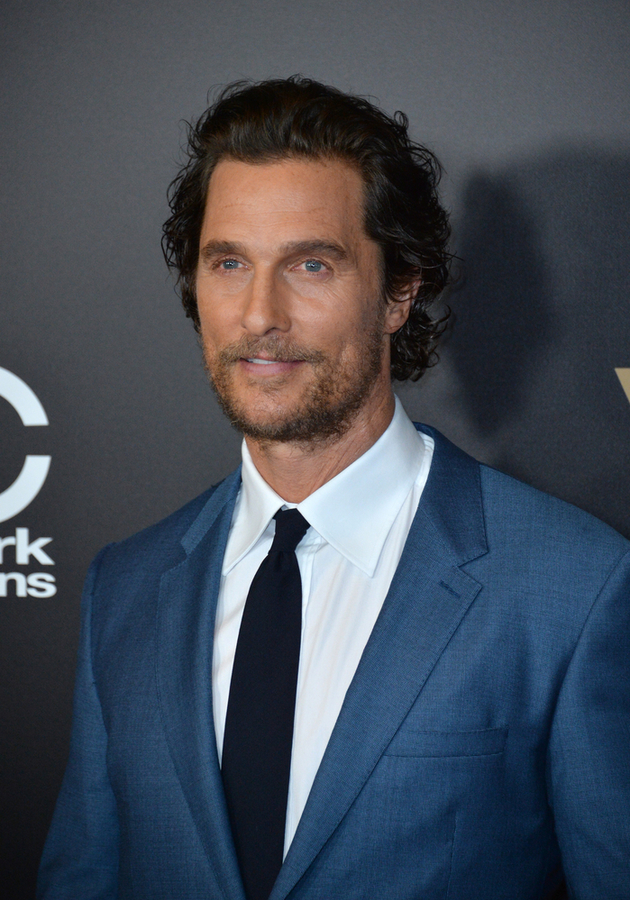Our past shapes who we are today - it determines our personality, behavior, and motives for our actions. For this reason, when a person is struggling with pain or any crisis, you should ask what happened to them rather than asking what is wrong with them. According to Oprah Winfrey and brain and trauma expert Bruce Perry, answering this question might help us know a little more about how experiences - both good and bad - define us. So, get ready to hear how numerous personal stories, including Oprah’s experience with trauma, combined with brain science, can help you reshape your own life.
Oprah’s story
When she reflects on her childhood, the most pervasive feeling Oprah remembers is feeling like she was a burden to everyone. Her mother and father were together only once when they made love under the oak tree near the house where Oprah’s mother Vernita lived. ‘’My father, Vernon, used to tell me I would never have been born if he hadn’t been curious about what was underneath my mother’s pink poodle skirt,’’ Oprah writes. She spent her early childhood with her grandmother, who used to beat her regularly, and her grandfather, who was usually shooing her away with his cane whenever she would come near him.
One of the worst beatings Oprah recalls happened on a Sunday morning, before a visit to the church, after Hattie Mae sent little Oprah to pump water on a well behind their house. As she waited for the bucket to fill with water, she was playing by twirling her fingers in the water, as any child might. Sadly, this sent her grandmother into a rage, as that was their drinking water. She grabbed Oprah and began whipping her so violently that her flesh welted. Then, on the way to church, she scolded Oprah for staining her dress with blood. The worst part after the beating was when her grandmother would demand her to wipe the tears and smile as if nothing happened. Oprah says this led her to believe that silence is the only way to end the pain quickly. ‘’For the next forty years,’’ she writes, ‘’that pattern of conditioned compliance—the result of deeply rooted trauma—would define every relationship, interaction, and decision in my life.’’
When people experience trauma, their brains find new ways to respond to circumstances, situations, and relationships. So, exploring the ways the brain reacts to stress or early trauma can help us cope with traumatic memories, understand and reshape our behavior for the better. As Oprah puts it, ‘’This is where hope lives for all of us—in the unique adaptability of our miraculous brains.’’
How trauma affects the brain
‘’What happened to you?” is not only a question to ask if you want to understand someone better, but also if you want to understand their brain. Each one of us has a personal history composed of our experiences. The events from our lives, places we visit, and the people we meet all influence the way our brain’s key systems function. As a result, every person perceives the world in their own unique way.
When Mike Roseman came to Dr. Perry’s office confused about his reaction to a motorcycle backfire, Perry immediately started looking at Mike’s behavior through the lens of his brain. What made him lie down on the ground with his hands over his head between parked cars when the motorcycle backfired? The thing is, Mike was a veteran of the Korean War and had seen lots of combat. During the war, his brain adapted to continuous threat, making his body sensitive to signals that referred to danger, which were the sounds of gunfire and shelling. For this reason, any sounds similar to these, such as those of fireworks or motorbike backfire, drew Mike’s attention with the potential to activate his fight or flight response.
You might wonder why Mike’s brain could not differentiate situations that posed a real threat to his life - such as the sound of gunfire - from those that brought almost no danger - such as the loud noise made by a motorcycle engine. The tricky part was that not all combat-related memories were in parts of the brain Mike could consciously control. Our brains are, as Perry says, ‘’four-layered cakes,’’ where bottom layers navigate less complex, mostly regulatory functions like body-temperature regulation, breathing, and heart rate. The top parts are responsible for complex functions, such as thinking, speaking, and planning. These parts also can ‘’tell time.’’
When we receive input from our senses, they first go into the lower layers and then to the upper parts. Therefore, when Mike heard a sound of a motorbike backfire, his brain activated stress response - before the information went to the upper brain parts that ‘’tell time.’’ For this reason, Mike’s initial reaction to the sound was to lie down and protect his head - the same as he did during combat.
Making sense of the world
Mike Roseman was 24 years old when he was in a war. If traumatic experiences changed his brain, imagine how they modify the developing brains of infants or toddlers.
From the moment a baby is born, its brain starts creating associations about how the world works, connecting external stimuli, such as sound, light, or smell, with personal experiences. Take eye contact as an example. It can refer to love, interest, or care, as well as fear or anger, depending on the child's experience. The truth is, children, especially the younger ones, absorb much more than we are aware of. Even when they don't understand the words, they sense nonverbal signs, like tone of voice. They can detect tension and hostility in angry speech and despair in a depressed one. And, since people think children don’t make sense of the world around them when they are young, they don’t protect them from negative experiences, thinking they would leave no impact on them. For instance, they curse in front of children, beat them, or act violently toward others.
Oprah says numerous women who appeared on her show chose to stay in unhealthy relationships, believing their children were too young to feel any consequences. They would say something like, “Well, when he gets older, I’ll leave the abusive father.” What actually happens to children with abusive fathers is that their brains begin to associate men in general with threat, anger, and fear. For one boy Dr. Perry worked with, the smell of Old Spice would trigger his stress response because that was deodorant his abusive father was using.
Many phenomena of our everyday life are a direct consequence of the brain making sense of the world by creating associations and making memories. For instance, have you ever formed an unjustified bad first impression of someone? Considering your brain cataloged vast amounts of input from your past, it was likely because attributes of the person evoked something it previously stored as unpleasant.
Learning self-regulation
Dr. Perry says that ‘’balance is the core of our health.’’ We feel and function the best when all our body’s systems have everything they need - when they are regulated and stabilized. When we lack something, we become dysregulated and feel discomfort. Therefore, we tend to return balance as fast as we can to avoid getting more upset. For instance, when we are hungry, we make ourselves a sandwich. If we are thirsty, we get a drink. In case we are cold, we look for warm clothes.
Oprah and Dr. Perry emphasize that it is essential for parents to realize that ‘’learning healthy self-regulation actually begins in infancy.’’ Babies usually cry because they are hungry, thirsty, sleepy, or need their diapers changed. ‘’Crying is their way to get themselves back into balance,’’ writes Dr. Perry, ‘’to get their caregiver to do what has to be done in order for them to get back into balance.’’
There are several important neural networks involved in regulation. They include our stress-response systems, networks involved in forming and maintaining relationships and giving pleasure. When an adult regulates a distressed infant properly, it feels satisfaction that discomfort is gone and connects the interaction with a caregiver with reward and regulation. Consequently, these bonding experiences create an infant’s positive perception of people. In other words, if caregivers are attentive, responsive, and nurturing, infants learn that relationships with other people can be rewarding and regulating.
Inadequate care of a hungry, scared or cold infant affects the child’s development negatively in two ways. First, it makes a child create a negative perception of people, and be distrustful of others. Second, stress-response systems in children with inadequate support from their caregivers are usually overactive and overly reactive. For instance, children living with domestic violence often find it hard to pay attention in class, as they are constantly looking for any signs of a potential threat in their environment. Drug addicts and alcoholics also serve as a great example of people with oversensitive stress systems. They usually use drugs and alcohol to get relief from the pain and distress they are constantly experiencing.
Post-traumatic wisdom
No matter how resilient a person is, they can never rebuild their pre-traumatic state completely. As Dr. Perry says, ‘’This is because our brain is changeable—malleable. It’s always changing.’’ Think of your brain as a metal hanger. If you want to change its shape, you can easily do it by applying force to it. Once you finish bending, it is impossible to return the hanger to its original state because the places where you bent it are now prone to breaking.
As each of us has a unique brain, we respond to traumatic events and recover from them differently. Several techniques, though, turned out effective in healing trauma among a great number of people. One of them is surrounding yourself with people who are present, supportive, and nurturing. Dr. Perry once worked with a girl called Ally who had witnessed her mother's death and the suicide of her father. Ally lived in a close-knit community with around 30 cousins, aunts, and grandparents. She was active in church, played sports, and had supportive elementary school teachers. Although she coped with sadness from time to time, there were no significant changes in her behavior - she managed to develop into a happy, active, and engaging girl. ‘’Most therapeutic experience—most healing—happens outside of formal therapy,’’ writes Dr. Perry. ‘’Most healing happens in community.’’
Oprah says that the church had a significant role in her trauma healing. For her, it was a safe place where she sought help and comfort from other people. She writes, ‘’I see that a key to healing from trauma is finding your ‘church home’—your people, your community. This can help build resilience, posttraumatic healing, and ultimately post-traumatic wisdom.’’
Activities based on patterned, repetitive movements are also an essential therapeutic tool. It is because rhythm is the core of a healthy body and mind. Most people can think of something rhythmic that calms them down. Therefore, if you are distressed, find what naturally puts your body and mind back in balance. It can be anything - music, laughter, dancing, knitting, cooking, walking, swimming, listening to the sound of waves on the beach - as long as it naturally soothes you and ‘’helps you stay open to the goodness in you and in the world.’’
Final Notes
‘’What Happened To You?’’ is a fascinating piece of writing that gives us a powerful insight into human behavior. It helps us understand ourselves and others better, so it will, hopefully, make us more compassionate, less judgemental, and more tolerant of unusual behavior. Ultimately, it will help us realize that trauma is, in a way, a gift. It is up to us to decide whether we will use it to move forward or stay trapped in pain forever.
12min Tip
Do you recognize any unhealthy patterns in your behavior? Reflect on your past experiences and try to figure out how they might have created them.





























